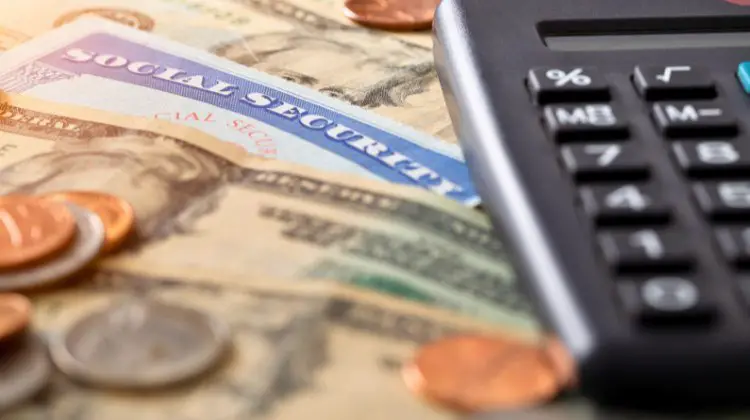Swiping a credit card might feel like magic. With one simple motion, we can buy things we want, pay for services, or even handle emergencies. But what if you’re unable to pay off your card entirely at the end of the month? At WiseMoneyLife.com, we’re all about guiding you through the financial maze. Let’s delve into the aftermath of not clearing your full credit card balance.
The Beginning: Minimum Payments and Interest
When your credit card statement arrives, it will show two figures: your total balance and the minimum payment due. If you only pay the minimum, the remaining balance carries over to the next month. But it doesn’t sit quietly. This balance begins accruing interest.
How Minimum Payments Add Up
When your credit card statement arrives, it will show two figures: your total balance and the minimum payment due.
For example, imagine your total balance for the month is $1,000 with a minimum payment due of $50. If you decide to pay only the $50, the remaining $950 gets carried over to the next billing cycle. Now, with a 25% Annual Percentage Rate (APR) on your card, this doesn’t mean you’re charged 25% in one month. Rather, that’s the annual rate. To get a monthly interest rate, you’d divide the annual rate by 12 (months). So, 25% ÷ 12 = approximately 2.08%.
In this scenario, the $950 will accrue interest at this monthly rate. Doing the math, $950 × 0.0208 = $19.76. This means by the next month, without making any additional purchases, your new balance would be $969.76 ($950 + $19.76 in interest) just from the interest charges.
With each month that you only pay the minimum and carry over a balance, you’re effectively increasing the amount you owe due to this compounding interest. Over time, it can significantly increase the total amount you owe, making it harder to pay off your debt.
The power of interest can work for you when you’re saving or investing, but when it comes to credit card debt, it often works against you. Always being aware of how much interest you’re accruing is vital to managing and reducing your debt.
Interest: The Silent Grower
Interest is like a silent gardener, watering the seeds of your existing balance, making it grow larger every month you don’t clear it. Credit cards often have high annual percentage rates (APRs). This means if you leave a balance unpaid, the interest piles up quickly.
Late Fees Can Kick In
If you don’t even meet the minimum payment, you’re usually charged a late fee. This adds to your overall balance, and yes, you guessed it, more interest will be charged on this new higher amount.
Your Credit Score Takes a Hit
Your credit score is like your financial report card. When you don’t pay off the total balance, it might start reflecting poorly on your score. Late payments or continuously high balances can make you appear risky to lenders. A lower credit score can impact your future borrowing capacity, potentially leading to higher interest rates on loans or even loan denials.
Loss of Reward Points
Many credit cards come with the allure of reward points. These points might be redeemed for travel, shopping, or other exciting perks. However, if you default on your payments, there’s a chance you might forfeit these reward points. It’s like leaving free money on the table.
Potential for Increased Interest Rates
If you’re consistently unable to meet your credit card payments, your card issuer might increase your interest rate. This is often referred to as a penalty APR. It’s higher than your regular APR and can make your debt spiral even faster.
Debt Collection May Begin
If you continuously skip payments or only pay the minimum, your debt keeps increasing. After a certain point, the credit card company might hand over your account to a debt collection agency. These agencies will then contact you, urging you to pay off your debt. Being on the radar of debt collectors is not a pleasant experience and can add additional stress to your life.
Loss of Credit Card Privileges
If your defaulting becomes consistent, your credit card issuer might suspend or cancel your card. This means you’ll lose the ability to make purchases using that card.
The Emotional Toll
Beyond the tangible financial impacts, there’s an emotional aspect to bear in mind. Mounting credit card debt can lead to significant stress. The constant worry about money, coupled with collection calls, can take a toll on your mental well-being.
How to Navigate Out of this Situation
- Create a Budget: Track your spending, cut down on unnecessary expenses, and allocate more money to clear your credit card debt.
- Reach Out to Your Card Issuer: They might offer a temporary reduced interest rate or modify your payment plan.
- Consider Debt Counseling: Professional counselors can provide guidance on managing your debt and getting your finances back on track.
In Conclusion
While credit cards offer convenience and perks, they must be used responsibly. Always aim to clear your full balance, or as much of it as possible. This way, you enjoy the benefits without the pitfalls.
For more insights into managing your finances wisely and ensuring a secure financial future, keep reading the posts on WiseMoneyLife.com. We’re here to help every step of the way.








Reader Interactions